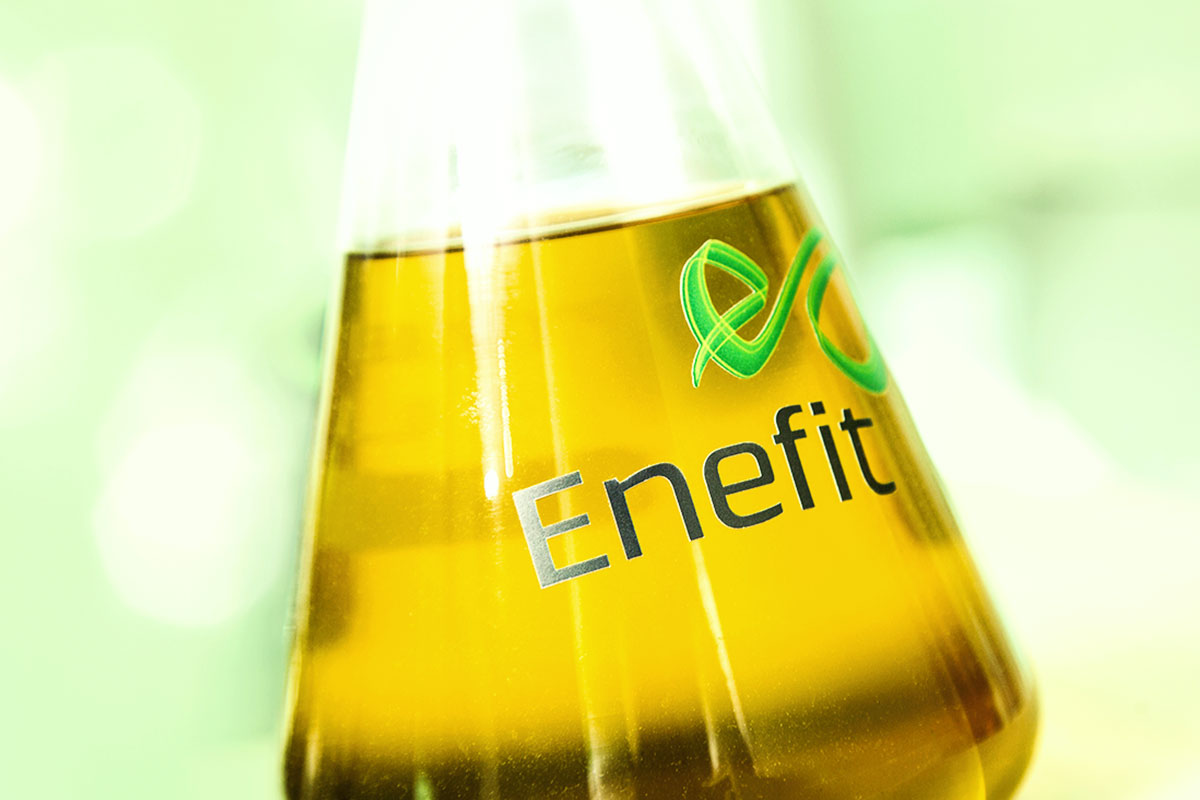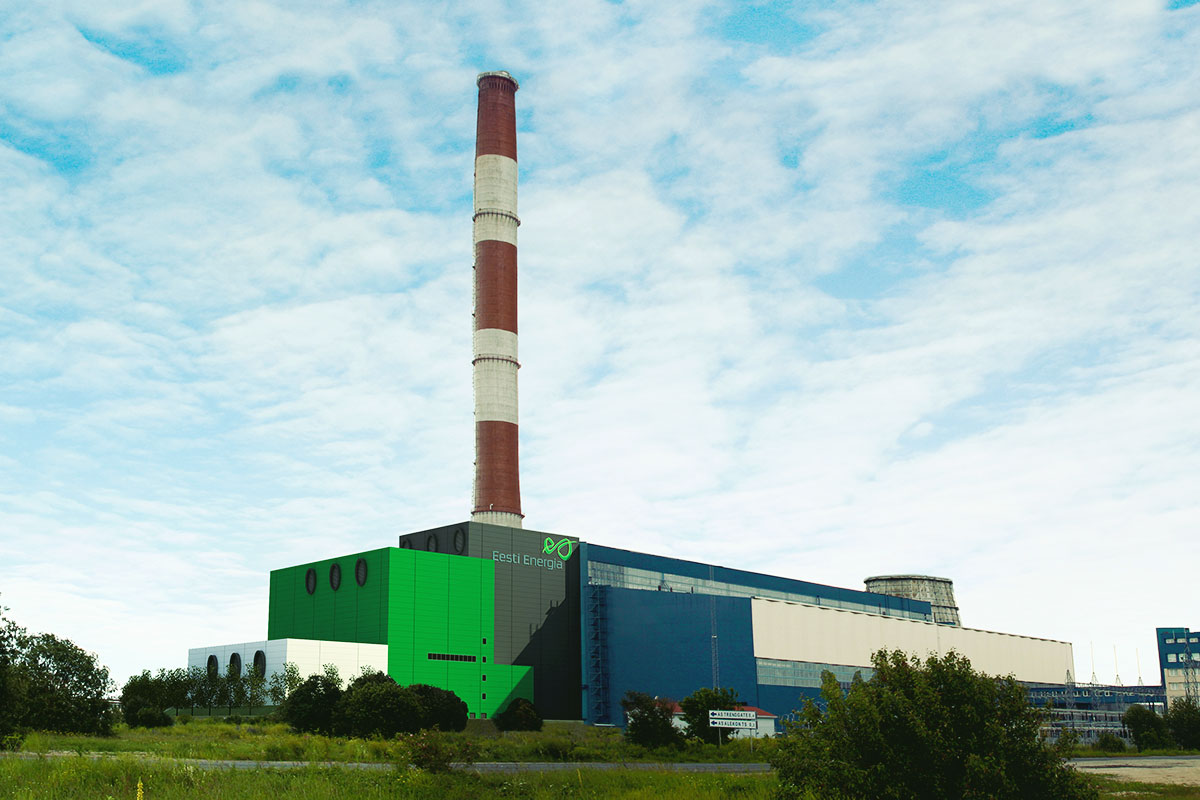Successful cooperation projects
Enterprise Estonia (EISA) supports Eesti Energia´s applied research project "Optimization of Electrical Devices and Reduction of Consumer Energy Prices in the Future Energy Systems“
The project results will enable Eesti Energia to develop a comprehensive equipment management service for customers with controllable devices, which will help keep their electricity bills as low as possible. Additionally, it will integrate the forecasting models of controllable devices and consumers into its energy trading strategy. The aim of the project is to create forecasting models that take into account the specific characteristics of the Baltic region, such as electricity and regulation market prices, weather data, and consumer habits. The resulting forecasting model can be used in energy pricing strategies across various markets.
This research and development project, numbered RE.5.04.24- 0564, has received support of 660,751.75 euros.

In 2023, the Environmental Investment Centre supported the application from Eesti Energia and Enefit Green for the "Energy Storage Pilot Project at the Purtse Wind and Solar Hybrid Park."
This pilot project addresses current challenges and opportunities in the energy sector—specifically, electrification and the use of renewable energy. To achieve carbon-neutral living, Estonia needs significantly more renewable energy. However, the production of wind and solar energy is an uncontrollable process, dependent on weather conditions in the production area. Consequently, there is a growing need for balancing controllable production or large-scale storage capacity in local markets.
Enefit Green is developing a unique solution in Estonia's Lüganuse municipality, creating a wind and solar hybrid park. A 21 MW wind farm and a 32 MW solar park will be constructed simultaneously, utilizing the same equipment, substation, and connection for electricity transmission to consumers. Additionally, the hybrid park will use a single grid connection capacity for both wind and solar-generated electricity. This approach is efficient because wind generates the most electricity from autumn to spring, while solar power peaks from spring to autumn. Consequently, the combined output of the two plants will be more consistent throughout the year, optimizing the use of limited grid resources.
As a result of the energy storage pilot project, a 4 MW/8 MWh battery storage system will be established at the Purtse wind and solar hybrid park. This will increase the adoption of electricity produced and stored from renewable sources, thereby enhancing the share of renewable energy in electricity systems while reducing the use of fossil fuels.
The project numbered 20.4.03.23-0060, has received support amounting to 1,000,000 euros. It plays a crucial role in the implementation of the group's strategy, supporting the journey of both Eesti Energia and Enefit Green towards a carbon-neutral economic model.


Enterprise Estonia supports the project by Eesti Energia titled "Applied Research and Process Technology Development for Upgrading Light Fractions of the Enefit Pyrolysis Process to Chemical Industry Feedstock."
Based on the development work carried out under the Applied Research Program, it is planned to build a plant for producing chemical industry feedstock from light fractions of oil shale pyrolysis. This will significantly increase the added value of the light fractions produced by Enefit Power. Through processing the light fractions, the company will be able to produce two types of chemical industry feedstock in the future: gaseous and liquid.
The project's innovation lies in process renewal, as the waste generated in the plant will be utilized and upgraded in the existing production. Previously, no processes have been developed worldwide, along with supporting technological solutions, for processing light fractions of oil shale pyrolysis into chemical industry feedstocks, which also enable the utilization and upgrading of all generated residues in existing production equipment. Additionally, the project will make it possible to avoid the current practice of burning semi-coke gas, which results in significant CO2 emissions. The production in Auvere will supply raw materials to the international plastics industry and thus reach our everyday products.
This research and development project, numbered RE.5.04.23-0205, has received support of 880,484.05 euros.

Enefit Volt builds 70 electric vehicle charging stations with support of EU funds
With the help of EU funds, Enefit Volt is expanding its charging services to other local markets. The company will install 70 chargers with at least 150 kW capacity at 35 locations across 4 countries by the end of 2025, thanks to the CEF (Connecting Europe Facility) support. The chargers will allow drivers to charge their vehicles for up to 100 km in just minutes, depending on the vehicle model.
The chargers will be located along the TEN-T (Trans-European Transport Network) route that connects Tallinn and Krakow in the south of Poland, passing through cities like Riga, Vilnius and Warsaw.
This project is funded by the European Union's CEF Transport Alternative Fuels Infrastructure Facility with a grant of 2,000,000 euros under the agreement No. 101101639 and with a grant of 1,500,000 euros under the agreement No. 101137482.


Eesti Energia will participate in a major Europe-wide electric car project
Eesti Energia will be participating in a major Europe-wide electric car project aiming to develop user-centric and innovative next-generation charging solutions. The project will begin in 2020 under the leadership of Renault and will end at the end of 2023. The budget of the development project is EUR 19 million, of which the European Union will cover EUR 15 million. The project will have 33 partners across Europe (France, Netherlands, Italy, Estonia, Germany, etc.). Funded by Horizon 2020, the project aims to test and identify the best possible charging solutions for electric cars.
During the project, Eesti Energia will install ultra-rapid chargers for electric cars in the vicinity of Tallinn, with the capacity to stabilize the power network. Eesti Energia will be developing charging solutions for private and commercial users of electric cars to provide simple, convenient and useful charging services that will also support the highest possible quality of electrical connection anywhere in the network.
The project has received funding from the European Union 's Research and Innovation Program, Horizon 2020, under Grant Agreement 875683.


Applied study to decrease the sulphur compounds in shale oil products
Enefit is starting cooperation wih TalTech to find solutions for reducing sulphur content in the oil products by studying the pyrolysis process parameters and the effect of possible additives to the sulphur content in different fractions. After an application plan will be made for the chosen technological application in the Enefit280.
Main goals:
- Report on results of the identification and classification of sulphur compounds in the shale oil. Also, possible reaction paths for removing sulphur from the shale oil fractions.
- Subject to the analysis results a proposal will be made for modification of the pyrolysis parameters and inclusion of additives for further analysis.
- Preparation of the application plan for the most suitable technological adaptation in Enefit's oil plants.
- As a result, an input will be received for further development of shale oil products. It will contribute to Enefit's products competitiveness and continued production.
The project has received EUR 211 500 of support from the European Union Regional Development Fund.


Applied study for decreasing the CO2 footprint of the oil-winning process
The aim of the study is to find a best CCU/CCS technology for Enefit280 in cooperation with the technology providers and develop an application plan for the chosen technology with the break-even price of 50 EUR/t.
TA partner sees Oxyfuel technology as a very potential candidate and aims to conduct a thorough investigation into this technology. This is subject to the condition that all the other potential technologies are considered equally. Based on the finding of technology analysis the focus will be adjusted.
Main goals:
- Oil-winning industry CO2 analysis.
- Enefit280 suitability assessment of the globally applied and studied CCS/CCU technologies.
- Development of further testing and research plan to validate the suitability of most promising technologies.
- Application plan to introduce an industrial scale operation.
The project has received EUR 200 000 of support from the European Union Regional Development Fund.


Study of ways to improve the efficiency of mine survey operations through remote monitoring methods
Eesti Energia has modernised its mining technologies and made a number of innovations to make operations more efficient and environmentally friendly. However, this has significantly increased the volume and complexity of mine survey operations.
Together with Tallinn University of Technology, we are conducting an applied research project to develop a metering and analysis method using semi- and fully automated remote monitoring solutions, which will make mine survey operations safer. In addition, modern metering technologies would increase productivity and reduce losses.
The main objectives of the project are:
- to develop the most suitable, reliable and efficient set of tools and equipment for mine survey operations for the renewed technologies of Estonian oil shale mines;
- to develop the most reliable and efficient metering methodology for measuring the volume of mineral resources extracted;
- to propose the necessary software developments for the processing of data and calculation of volumes of the new metering methodology.
The project has received EUR 42,764 of support from the European Union Regional Development Fund.


Study of the enrichment possibilities of the mining mass originating from lava complex
In the context of ever-stricter environmental standards and ever-increasing environmental charges, Eesti Energia is looking for solutions to reduce its environmental impact and improve its oil shale valorisation processes.
The study, conducted in cooperation with the Mining Department of the Institute of Geology at TUT, will help Eesti Energia to select enrichment technologies and evaluate their profitability in a smarter way. The project contributes to a more efficient use of oil shale and helps to reduce specific emissions and waste (waste rock, ash, COx, NOx, SOx).
The main objectives of the project are:
- To create a calculation model to predict the quality and yield of the enrichment process;
- To develop an oil shale enrichment scheme suitable for the enrichment of the ore from longwall mining in the selected mining field according to the quality requirements of the consumer (fuel efficiency, particle size, humidity);
- To choose the optimal enrichment scheme (equipment selection) according to output quality requirements and ore characteristics.
The project has received EUR 62,100 of support from the European Union Regional Development Fund.


Study of the relationship between the sulphur content of oil shale and the properties of shale oil
Eesti Energia produces approximately 400,000 tons of shale oil per year, which is consumed by heat producers, energy companies, manufacturers and sellers of marine fuels, road builders, agricultural producers and other companies. Essentially, shale oil is synthetic petroleum that needs to be heated without air to obtain it. This process is known as pyrolysis.
Our shale oil is characterised by low sulphur content. Further reduction of the sulphur content will allow the competitiveness of shale oil to be even more enhanced. As sulphur gets into oil from oil shale, we have started to study, in cooperation with the University of Tartu, the relationship between the amount and forms of sulphur in oil shale and the quality of oil produced from oil shale. By studying the behaviour of oil shale sulphur in the pyrolysis process, we hope to find solutions that will enable more targeted planning of oil shale mining and use in the future.
The main objectives of the project are:
- to clarify whether shale oil with variable sulphur contents affects the characteristics of shale oil;
- to assess whether selective mining can reduce unwanted impurities in shale oil without refining it;
- to offer opportunities for more targeted planning of oil shale mining and use.
The project has received EUR 56,954 of support from the European Union Regional Development Fund.

